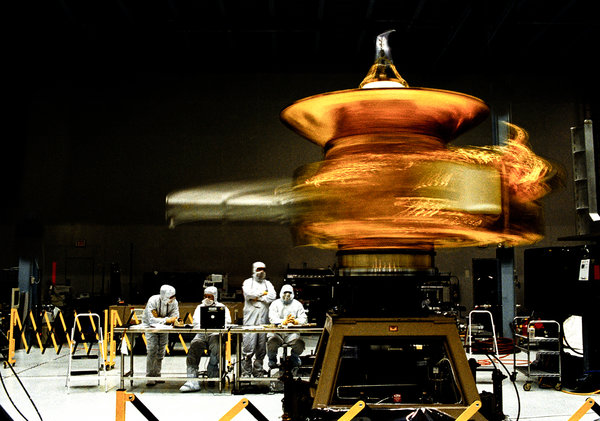Do not sign contracts. Do not buy electronics, or anything with moving parts or gears. Do not be surprised if the mail is screwed up, or something goes awry when you’re in transit. And be mindful: You’re liable to forget something, like your glasses or phone.
That’s the advice from astrologers while the planet Mercury is in retrograde, which lasts until March 28 this time around. The phrase has become a go-to explanation — or scapegoat — for when things go a little haywire.
Of course, actual scientists point out that any “retrograde” motion by Mercury is an optical illusion. And they vigorously dispute the core belief of astrology, that the motion of the planets can influence events here on Earth. In fact, studies have shown no correlation between the behavior of planets and of people.
Astrologers and their many loyal followers are not persuaded about that.
But two prominent astrologers we spoke to said there was some exaggeration in the popular mind about the chaos caused by Mercury’s motion.
Susan Miller, the force behind the popular site Astrology Zone, finds the alarmist headlines about “surviving” retrogade to be a bit much.
“It’s not tragic,” she said. “It’s annoying.”
Chani Nicholas, whose writing is infused with political and social commentary, agreed. “It’s given way too much emphasis generally,” she said.
They preach caution, not panic. For example, you might have to purchase a gadget during Mercury retrograde. That’s fine.
From astrology memes to Instagram crystals, mysticism is taking over the internet. Is it all irrational nonsense — or is it a necessary corrective to the data-driven, hyper-logical, crypto-libertarian values that rule the internet?
“Just keep your receipts,” Ms. Nicholas said.
Here’s what’s really happening in space
Mercury is the planet closest to the sun, and it revolves around the sun in just 88 days. That’s much faster than Earth, which takes 365 days to make the trip.
Rick Fienberg, a spokesman for the American Astronomical Society in Washington, suggests picturing Mercury as a racecar in an inner lane and Earth in an outer lane, as they both make their way around a circular track. Mercury is going much faster and has a shorter distance to travel.
Now, on to the issue of direction: If you watch the planets from the Northern Hemisphere, most of the time they appear to be going right to left, over a period of several weeks, as seen against the starry background. (Mercury is also hard for us to see — it’s visible only close to sunrise and sunset.)
But three or four times a year, an optical illusion occurs: It looks as if Mercury is going backward. It happens when Mercury is passing between Earth and the sun, leaving Earth in its dust. That’s Mercury retrograde, and it lasts for about three weeks each time. The next one starts July 7.
“It’s lapping us, basically,” Dr. Fienberg said. “It’s coming around and it’s going to pass us.”
[Never miss a rocket launch, eclipse or major astronomical event again.]
The visual effect is similar to when you speed up to pass another car, and it looks for a moment as if the other car is slowing down — but it’s really just maintaining its speed.
Why do people care so much about this?
Astrology has soared in popularity in recent years, particularly among young, female and queer online communities. Ms. Miller said that her site received 300 million page views in the last year alone. And this year, she said, there has been an uptick in concern about Mercury retrograde. (Online searches for the term have risen dramatically over the last five years, according to Google data.)
Call it a sign of the times.
“The meteoric rise of New Age practices may be trendy, but it’s one way millennials are acknowledging that the current system isn’t working,” Krista Burton wrote in a Times Op-Ed last year.

Sync your calendar with the solar system
Never miss an eclipse, a meteor shower, a rocket launch or any other astronomical and space event that’s out of this world.
“We’re trying out new things that are actually old things; we’re seeing what else could make life a little more meaningful, a little more bearable.”
But astrology is sometimes met with ridicule or derision by scientists and non-believers. Ms. Nicholas said she was emphatically pro-science, and “baffled” about the negative reaction that some people have to astrology.
“It’s a waste of your energy to be hating on astrology, because we really aren’t out here trying to harm people,” she said.
The National Science Board, which submits biennial reports to Congress on the state of science and engineering in the United States, including attitudes toward “pseudoscience,” has also found that younger Americans are less likely to reject astrology. Its 2018 report found that 54 percent of those 18 to 25, and 53 percent of those 25 to 34, said astrology was “not at all scientific.” Among all respondents, that number was 60 percent.
And a Pew Research Center survey of American adults released last year found that 37 percent of women and 20 percent of men said they believed in astrology. The numbers were highest among people ages 30 to 49, followed by those who were 18 to 29.
Many people, of course, may peruse their horoscope without embracing all of the teachings of astrology. And having “Mercury retrograde” as a go-to phrase to describe things going wrong can be pretty useful.
Both Ms. Miller and Ms. Nicholas said that there were positive aspects to Mercury being in retrograde, and that it was a good opportunity to look back, reflect and regroup. Ms. Nicholas is using the time to complete revisions on her upcoming book about astrology and radical self-acceptance, due out in December.
“My main concern is that everyone has access to the therapies and practices that are healing to them,” Ms. Nicholas said.
“And if astrology is not that for you, then great, move on.”







